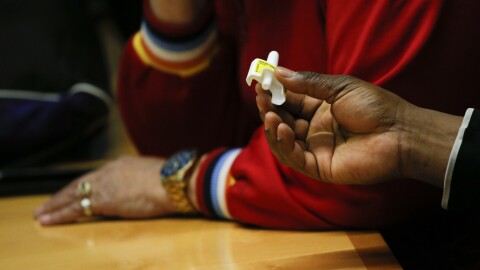Despite the expanded availability of an overdose antidote, Ohio still has one of the highest rates of opioid overdose deaths in the country.
But what happens to someone after they overdose and survive? A new research project from Miami University seeks to answer just that question.
According to the Centers for Disease Control and Prevention, Ohio boasts the second-highest overdose death rate in the country. In 2017, the state recorded 4,854 drug overdose deaths, a record high and a 20 percent rise over the previous year.
As more people overdose in Ohio, researcher Matthew McMurray says it stands to reason that more and more people are surviving overdoses, too.
“That may have some consequences on their brain that makes treatment of addiction more challenging or makes that individual more likely to relapse,” McMurray says.
Lack of oxygen during an overdose could lead to problems in decision-making, memory or motor skills. McMurray says cognitive changes can cause depression, anxiety or other disorders.
There is an extensive body of research on preventing addiction from happening, but there hasn’t been a deeper look into the aftermath of an overdose. Local coroners collect information on those who die from overdoses, but there’s little information on those who survive.
McMurray conducts his research on animal models, specifically rats. He says it’s hard to work on the same study in humans because Narcan, an overdose reversal drug, is widely available, and many people never come into the hospital for it.
“Giving them this drug in the home, while it does save their life, also creates challenge for data collection,” he says. “It’s much harder for us to study overdose victims because they’re often rescued outside of care settings so we can’t track them as easily.”
Testing on rats allows the researcher to examine the effects on the brain in a more controlled way. Although animal testing doesn’t always mean the findings will be applicable to humans, McMurray argues the limited scope of the impacts of overdose on the brain should be more conclusive.
“I’m not trying to model a human disease like addiction," he says. "I’m trying to model one simple thing – the suppression of respiration from this drug – and then I can look at the impact of that."
McMurray says his team should have data within a few months, and are planning to work with other researchers to look at humans.





